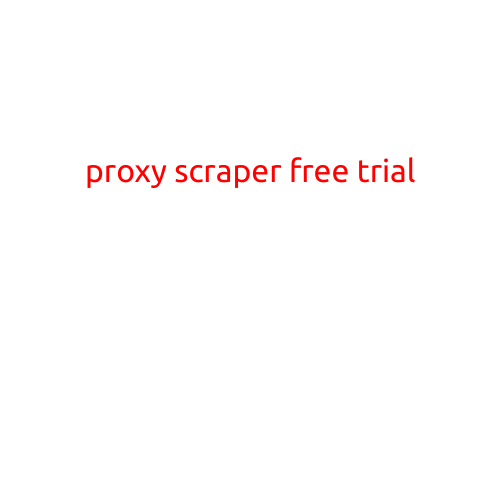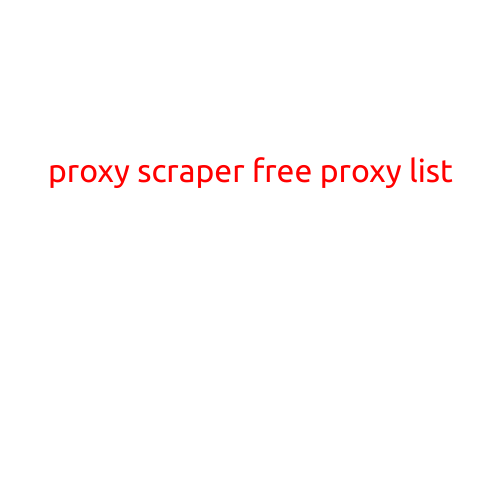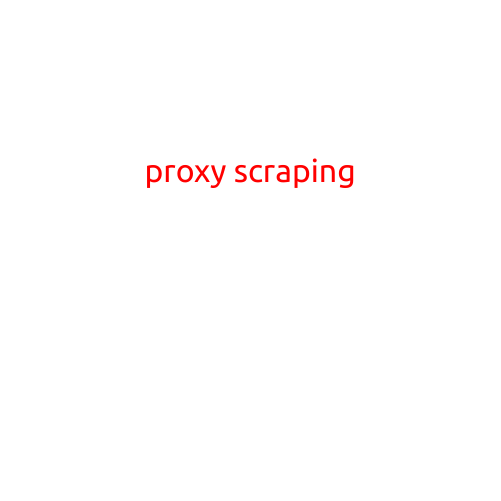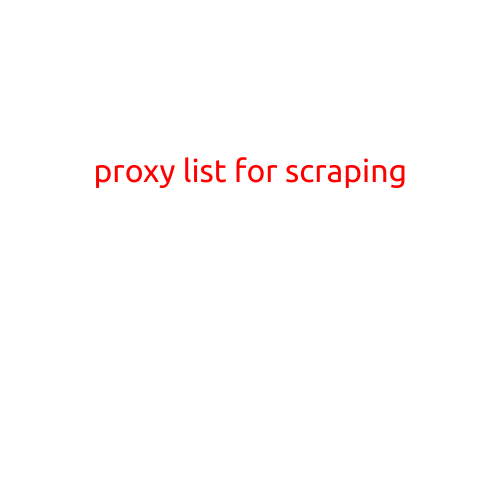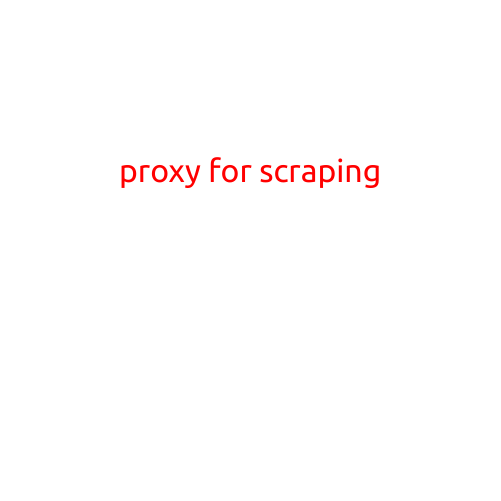
Proxy for Scraping: How to Avoid Being Blocked and Achieve Efficient Data Collection
Web scraping is an essential technique for extracting data from websites, but it can be challenging, especially when dealing with websites that block or limit access to their content. One effective way to overcome these obstacles is by using a proxy for scraping. In this article, we’ll explore the concept of a proxy, its benefits, and how to use it for web scraping.
What is a Proxy?
A proxy is an intermediary server that sits between your web scraping program and the target website. When you use a proxy, your requests are routed through the proxy server before reaching the target website. This creates a layer of anonymity, making it difficult for the target website to identify your IP address and block your requests.
Types of Proxies for Scraping
There are several types of proxies that can be used for web scraping:
- Residential Proxies: These proxies are assigned to actual internet users and are considered to be more human-like. They are more expensive than data center proxies but provide better performance and lower detection rates.
- Data Center Proxies: These proxies are located in data centers and are typically less expensive than residential proxies. They are, however, more likely to be detected by websites and may result in lower performance.
- Mobile Proxies: These proxies mimic the behavior of mobile devices and can be used to scrape websites that are designed specifically for mobile users.
- Transparent Proxies: These proxies send your IP address with each request, but can still be useful for scraping websites that do not use IP blocking.
- Rotating Proxies: These proxies rotate your IP address with each request, allowing you to scrape multiple websites without being detected.
Benefits of Using Proxies for Scraping
There are several benefits to using proxies for scraping:
- Avoid IP Blocking: Proxies can help you avoid IP blocking by websites that detect and block repeated requests from the same IP address.
- Improved Performance: Proxies can improve the performance of your web scraping program by distributing the load across multiple servers.
- Enhanced Anonymity: Proxies provide an additional layer of anonymity, making it more difficult for websites to track your requests.
- Access to Restricted Content: Proxies can help you access websites that are restricted to specific geographic locations or that require specific authentication.
How to Use Proxies for Scraping
Using proxies for scraping is relatively straightforward:
- Choose a Proxy Provider: Select a reputable proxy provider that offers proxies specifically designed for web scraping.
- Set up Your Proxy: Configure your web scraping program to use the proxy server. This typically involves setting the proxy IP address and port number.
- Monitor Your Proxies: Monitor your proxies regularly to ensure they are working correctly and to detect any potential issues, such as proxy rotation or IP blocking.
- Rotate Your Proxies: Rotate your proxies regularly to avoid detection and to ensure that your proxy IP addresses are not blocked by websites.
Conclusion
Proxies are an essential tool for web scraping, providing a layer of anonymity and enabling you to access websites that would otherwise be inaccessible. By choosing the right proxy provider and configuring your web scraping program correctly, you can achieve efficient data collection and avoid being blocked by websites. Remember to monitor your proxies regularly and rotate them to ensure optimal performance.
